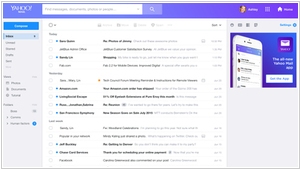Yahoo Mail vs iCloud Mail
September 14, 2023 | Author: Adam Levine
11
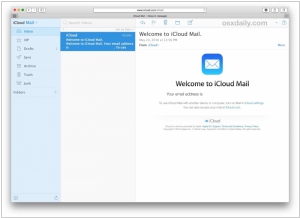
With your iCloud Mail account, you can send, receive, and organize email. When you set up your devices for iCloud Mail, you can also access your iCloud Mail account using the Mail app on your iOS device, iPadOS device, or Mac computer, or using Microsoft Outlook on a Windows computer. No matter which device you use, the changes are updated everywhere.
See also:
Top 10 Email services for Business
Top 10 Email services for Business
Yahoo Mail and iCloud Mail are two email services with distinct characteristics. Yahoo Mail is a web-based email service offered by Yahoo, providing users with a free and feature-rich email platform that includes customizable themes, spam filters, and news updates. It's accessible on various devices and platforms. In contrast, iCloud Mail is Apple's email service, tightly integrated with the Apple ecosystem. Users with an Apple ID receive an @icloud.com email address and benefit from seamless synchronization of emails, contacts, calendars, and files across iOS, macOS, and the web. While Yahoo Mail offers versatility and accessibility for users of different platforms, iCloud Mail is ideal for individuals deeply entrenched in the Apple ecosystem who seek seamless integration and synchronization across their Apple devices.
See also: Top 10 Email services
See also: Top 10 Email services
Yahoo Mail vs iCloud Mail in our news:
2023. Apple revamps iCloud.com with more features for drive, mail and notes
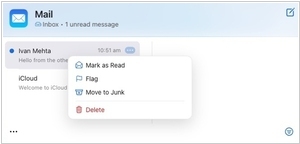
Apple has introduced a revamped version of iCloud.com, enhancing its functionality for PC users. The redesigned website offers support for browser notifications for Mail and Calendar, allowing users to receive alerts directly on their PCs. Additionally, the homepage is now customizable, enabling users to take quick actions like downloading files, deleting emails, marking tasks as unread, and more. This update builds upon last year's redesign, which included quick-glance widgets for apps like Notes and Pages. Furthermore, iCloud.com now enables users to insert links from one note into another, akin to iOS 17, enhancing the overall user experience and productivity on the platform.
2023. Yahoo Mail introduces new AI-powered capabilities
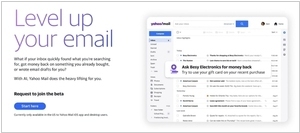
Yahoo is launching some new innovative AI tools for Yahoo Mail, designed to assist users in conserving both time and finances. This deployment encompasses enhancements to numerous pre-existing AI functions within Yahoo Mail, alongside the introduction of a fresh tool known as the Shopping Saver. This novel Shopping Saver tool brings to light forgotten gift cards, discount codes, and store credits, subsequently aiding users in leveraging these resources. Furthermore, the tool generates recommended messages to send to vendors, streamlining the process of applying these savings subsequent to a purchase. According to Yahoo, a significant portion of U.S. adults possess unused gift cards, vouchers, or store credits, with the new tool aiming to facilitate monetary savings during online transactions. Yahoo competitors Google and Microsoft have also rolled out several generative AI-powered features to Gmail and Outlook over the past year.
2018. Yahoo Mail launches version for mobile web
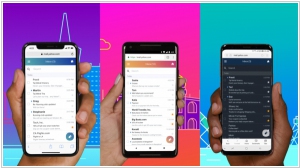
Yahoo has announced the release of two new versions of Yahoo Mail: one optimized for mobile web and another designed specifically for Android Go, an Android variant tailored for more affordable smartphones. The primary objective of these updates is to enhance the mobile web and Android One experiences, with the intention of expanding the user base of Yahoo Mail among different segments of users. The focus is on attracting individuals who utilize lower-end devices, whether in emerging markets or as more casual mobile users in more developed markets. Currently, Yahoo Mail boasts 227.8 million monthly active email users, a relatively modest figure when compared to Gmail's 1.4 billion users reported in April of this year.
2018. Yahoo Mail launches new wave of updates
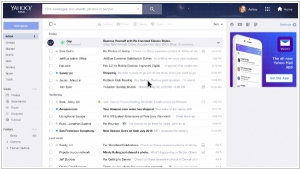
While eagerly anticipating the upcoming major revamp of Gmail, its competitor Yahoo Mail has introduced a series of updates, focusing on enhanced personalization options and improved performance. These updates bring significant improvements, including a notable 50 percent reduction in JavaScript exceptions and a 20 percent decrease in overall API failures. In terms of new features, Yahoo Mail now offers photo themes, allowing users to customize their backgrounds, thus adding visual flair to the otherwise straightforward email service. Additionally, the integration with the calendar has been refined, and the out-of-office responders have become smarter and more efficient.
2015. Yahoo Mail gets Xobni-based contact cards
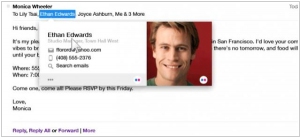
Yesterday, Google made an announcement regarding the revamp of its Google Contacts service. Today, Yahoo is following suit by introducing new "Contacts Cards" in Yahoo Mail, accessible through this link: Yahoo Mail. These cards are small and appear when hovering over a person's name in a message. They provide valuable information about the individual, such as their phone number, job title, company, and even links to their social profiles. In addition to displaying standard information like phone numbers, job titles, and email addresses, the Contact Cards also feature a photo (or a company logo, if applicable) and links to social profiles, including Facebook and Yahoo-owned Flickr. This enhanced system is powered by technology from Xobni, a company that Yahoo acquired in 2013. It's worth mentioning that Xobni was one of the pioneers in developing email add-ons that could gather additional information about contacts directly within the inbox, including data from various social networks.
2013. Yahoo acquired social email-plugin Xobni

Xobni team celebrating with money-boxes from Yahoo. ***
2012. Yahoo! Small Business allows to monitor Social Web
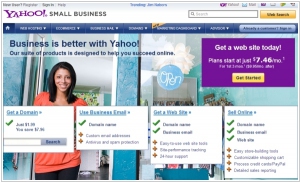
In the past, the Internet giant Yahoo! ventured into business-oriented projects, as evidenced by their acquisition of the collaboration platform Zimbra. However, Yahoo! later formed a partnership with Microsoft and chose not to compete directly with their partner. Consequently, Zimbra was eventually sold to VMWare. Despite these changes, Yahoo! still retains one business-oriented service in its portfolio, namely Yahoo! Small Business. This service empowers small companies and entrepreneurs to easily create a website, set up email accounts, and establish online stores. Over the years, Yahoo! has undergone executive, strategic, and priority shifts, resulting in the closure of several services. However, Yahoo! Small Business has remained operational due to its genuine customer demand and profitability. Furthermore, Yahoo! continues to allocate resources for the ongoing development of this service. Recently, Yahoo! Small Business introduced a free marketing dashboard that enables users to monitor their online reputation across social networks like Facebook and Twitter. The dashboard also offers website metrics analysis, facilitates email campaigns, and provides submission to small business directories. Notably, it incorporates social media monitoring capabilities and offers recommendations for new listing opportunities on platforms such as Yelp, Yahoo, and others.
2011. Xobni turns Email into universal access point to business apps
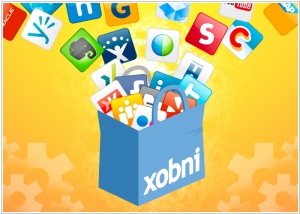
We have already talked about the competition between Email and corporate portals/social tools for the right to be the primary workplace. Initially, this role was fully owned by Email. Then appeared the web-based collaboration systems and social tools that were intended to replace the "outdated" Email. And it seemed that they would kill Email soon. But some clever people invented social Email plug-ins (Xobni, Rapportive, Harmon.ie, Gist, Etacts), that gave the second life to Email-clients. They added social and file-storage functions to the Email. And they're not going to stop. Today Xobni has opened the Xobni Gadget Store - the marketplace for apps, that can be embedded to MS Outlook and turn it into the universal interface to all business systems. ***
2009. Xobni is out of beta
Xobni, the social plugin for Outlook, has officially moved out of its beta phase and introduced a new version with additional features. These features include enhanced user controls that allow for better customization of Xobni's behavior, catering to users with less powerful computers who can now optimize the plugin's performance. Users can customize indexing times, configure delayed loading on Outlook startup, and more. Additionally, Xobni has secured an additional $3.2 million in investment, bringing their total Series B funding to over $10 million. This investment, led by BlackBerry Partners Fund, will be used to further develop the product and support the upcoming release of a premium version scheduled for this summer. Rick Segal from BlackBerry Partners Fund joins Xobni's board of directors as part of the investment. Cisco Systems led the initial part of the Series B funding, contributing $5 million in January 2009.
2009. Yahoo Mail Chases Gmail with IM and SMS Features
Yahoo Mail has introduced SMS and IM options, enabling users to send messages to their friends' phones or instant messaging accounts directly from the Yahoo Mail interface. These features were previously available in the new version of Yahoo Mail, but with a large number of users still on the "Classic" version, today's rollout brings these capabilities to a wider audience. The SMS functionality is quick and easy to use, resembling a typical IM chat, while the built-in messaging works well for Yahoo Messenger or Windows Live Messenger users. However, unlike Gmail, which integrates with popular IM platform AIM, Yahoo Mail lacks this feature, limiting access to a significant portion of IM contacts. This, combined with issues such as weaker spam filtering and a visually cluttered interface with graphical ads, gives me no incentive to switch to Yahoo Mail. It's not only a Yahoo Mail issue; when I recently tried AOL Mail after a few years of absence, the results were similar. While these services add new features, their core product, email, falls short in quality. Nevertheless, I understand why they still have millions of users, as AOL, Yahoo, and Hotmail were established players before Google entered the scene, creating a significant level of user lock-in. Switching email addresses is often not a feasible option for many people. However, Gmail stands out in terms of user experience, exemplified by its recent launch of offline support, bringing it closer to the functionality of desktop mail clients that many corporate users still rely on. Although Gmail's market share may be smaller compared to its competitors, this is primarily due to their head start in the industry. For newcomers to the web or individuals transitioning from desktop to webmail, Gmail should be the clear choice as their email provider.

